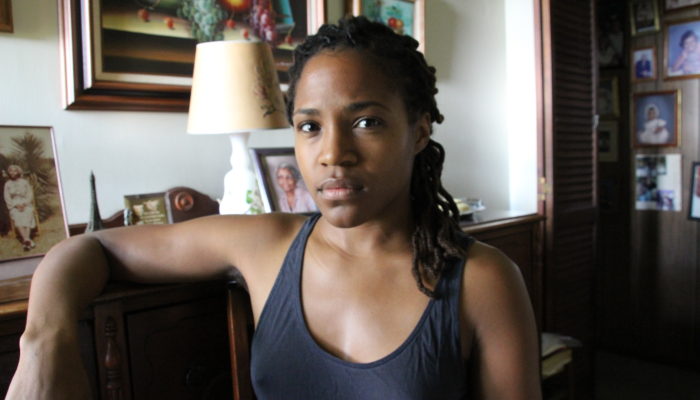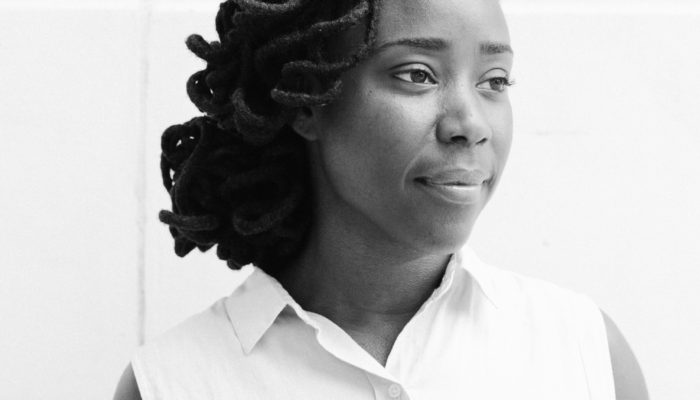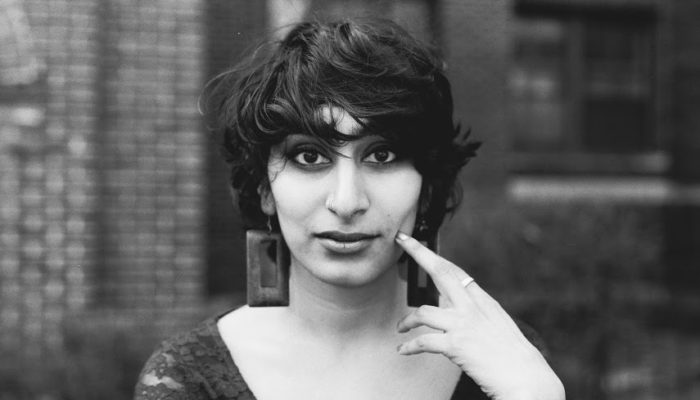Chinelo Okparanta’s story, “Ife Adigo Market—1978” appears in Issue 3 of Apogee Journal. Her first story collection, Happiness, Like Water, was released in 2013, and was selected as one of The Guardian’s Best African Fiction of 2013. Chinelo and I corresponded about politics in writing, immigration, and the discomfort of labels.
Zinzi Clemmons: Your story in Issue 3, “Ife Adigo Market—1978”, describes the changes that occur in a Nigerian town that coincide with the arrival of white people—ndi ochas. Can you describe the events that inspired this story?
Chinelo Okparanta: The story was inspired by an event that happened to my mom when she was a girl. She, too, had fallen ill and had nearly gone blind when she was young. The story was also inspired by some of my time back home in Nigeria, periods in which there were questions surrounding the quality of medicines being sold there. Knock-off items exist everywhere, but the issue of counterfeit medicines was especially problematic during that time.
“Ife Adigo Market” illustrates the battle between old world and new world and the confusion over the better way to go: the native doctors or the new medicines. There’s a sort of hopelessness but also a parallel hopefulness to the story—the idea that, at times, it seems a losing battle between the devil you know and the one you don’t. But then, sometimes, there are surprises.
ZC: “Ife Adigo Market” is perhaps the most overtly political of your stories. What place do you see politics as having in literature—in your own work and in literature as a whole?
CO: I used to say I was not a political person, that my writing just happened to be political. I’ve grown as a writer, and I do realize that I am naturally concerned with the politics around me. I think most people are political, even when they are unaware of it. I think certain kinds of literature would actually do well to be more political, not for the purpose of stirring up trouble, not to be controversial merely for controversy’s sake, but rather for the purpose of encouraging difficult discussions that can potentially lead to real social changes, even seemingly small ones.
ZC: Your short story “America” is my favorite of your collection, Happiness, Like Water (Mariner, 2013). In it, the female narrator pursues a move to the United States to join her girlfriend who has relocated there. She applies for a visa under the guise of conducting environmental research related to the Gulf oil spill. The story touches on several important issues, including the status of gays and lesbians in Nigeria, immigration, and environmental politics. When you sat down to write this story, did you set out to converse with all or some of these issues, or did other elements of the story—characters, setting, plot—serve as inspiration?
CO: The story came to me almost fully formed, and I only had to write it to see what it was about. I did have to research some aspects of it, but only after I had already set it down on paper. Before hand, I didn’t consciously think, “Let me include the oil spill here, and let me include lesbians there, and let me include immigration here.” But I was home for a visit, and the gulf spill had just happened. In addition, my own personal life has made it so that I am naturally interested in LGBTQ rights. Somehow a story came to me that just so happened to involve all of these topics.
ZC: Your family immigrated to America when you were ten years old, and many of your stories are set in America and focus on characters straddling both continents. Can you talk about that transition—was it a happy time? A fearful one? In what ways has the experience of immigration affected your writing?
CO: For a long time after my family came to the US, I had dreams of going back home, not just at night, waking dreams as well. I used to wonder, if I were to walk back home—if by some miracle it became possible to walk the distance—just how long it would take? Immigration has its challenges. But I am grateful for the experience because thanks to it, I am able to straddle two different worlds. I am first and foremost Nigerian. But I am also American.
ZC: In 2013, “America” was shortlisted for the prestigious Caine Prize, one of the highest honors for literature in the continent. How do you view this honor as someone who has lived in the US for much of your life? If you entertain such classifications, do you consider yourself an African writer? How do you see yourself relating to writers based in Nigeria and in Africa?
CO: I was honored to be shortlisted for the Caine Prize. True that I’ve lived in the US for some time. I am indeed happy for my US experience. But also true that my Nigerian experiences and knowledge are real and first-hand, and have been strong enough to fuel my writing. And I am happy for that. It’s always a good thing to be multi-faceted, to have divergent life experiences. It makes for a fuller life. And, as a fiction-writer, I find it interesting to explore the different ways in which cultures converge, intersect, or even fail to come together.
As for categorization as an African writer, I don’t overly concern myself with categories. But I am African, and I am a writer, so, yes, I’m indeed, among other things, an African Writer, and I am proud of it. Sometimes I do come across comments that seem to question the authenticity of my Nigerianness or my Americanness. This is the problem with categories. Sometimes they are used in ways that are othering, rather than affirming. Sometimes they are used by those who are seeking ways to discredit others. Sometimes they are set in opposition to one other, as if two or more categories cannot happily exist at a time. I exist happily enough with both my Nigerian and American identities. I have learned from both, and have been lucky enough to make art out of the experiences of both.
As far as my relating to writers based in Africa, the Caine Prize has been an exceptional experience for me in the sense that the friendships I formed with fellow writers during the prize events, as well as during the workshops, have endured. So, yes, I do keep in touch with quite a few of the writers on the continent. It’s nice to have that relationship, which so far seems to be mutually beneficial.
ZC: What’s next?
CO: A novel about love.





